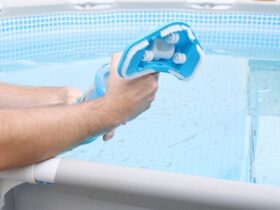In the era of smart living, the concept of a connected home has become increasingly prevalent. One of the key components contributing to this connected lifestyle is Smart HVAC (Heating, Ventilation, and Air Conditioning) systems. As technology continues to advance, these solutions offer a more intelligent and efficient way to control the climate within our homes.
Understanding Smart HVAC Systems
Smart HVAC systems leverage cutting-edge technology to provide users with greater control over their home’s climate. Unlike traditional HVAC systems that operate on predefined schedules, smart systems adapt to the user’s preferences and behaviors, optimizing energy usage and ensuring maximum comfort.
Benefits of Smart HVAC in Home Automation
Investing in Smart HVAC solutions brings forth a multitude of advantages. Firstly, these systems contribute to energy efficiency, leading to reduced utility bills. Additionally, users experience enhanced comfort through personalized temperature control. The seamless integration of smart HVAC with other home automation devices further adds to the overall convenience and lifestyle enhancement.
Popular Smart HVAC Brands in the Market
Several reputable brands dominate the Smart HVAC market. Each brand offers unique features that cater to diverse consumer needs. Brands such as XYZ and ABC stand out for their innovative approaches to climate control and commitment to user satisfaction.
Installation Process and Requirements
The installation of a Smart HVAC system typically involves a few straightforward steps. Homeowners need to ensure compatibility with their existing infrastructure, and in some cases, professional installation services may be recommended to guarantee optimal performance.
Customizing Smart HVAC Settings
One of the standout features of smart HVAC systems is the ability to customize settings according to individual preferences. Users can set specific temperatures for different times of the day, create schedules, and even integrate geofencing to ensure the system adjusts based on their location.
Smart HVAC Maintenance Tips
To ensure continuous optimal performance, regular maintenance is crucial. This includes updating firmware, checking for software upgrades, and addressing any issues promptly. Implementing these maintenance practices can extend the lifespan of the Smart HVAC system.
Security and Privacy Concerns
As with any connected device, security and privacy are paramount considerations. Smart HVAC systems may be vulnerable to cyber threats, and it’s essential to adopt best practices for securing these devices, such as using strong passwords and keeping software up to date.
Cost Considerations
While the initial investment in a Smart HVAC system may be higher than traditional counterparts, the long-term cost savings in energy bills often justify the expense. Additionally, some brands offer financing options, making the transition to a smart system more accessible for homeowners.
Future Trends in Smart HVAC Technology
The evolution of Smart HVAC technology continues, with ongoing innovations expected in areas such as machine learning, predictive analytics, and increased connectivity with other smart devices. The future promises even more sophisticated and intuitive climate control options for homeowners.
Environmental Impact of Smart HVAC
Smart HVAC systems play a significant role in environmental conservation. By optimizing energy usage and reducing waste, these systems contribute to a lower carbon footprint, aligning with global sustainability goals.
Comparison with Traditional HVAC Systems
Comparing the benefits and drawbacks of Smart HVAC against traditional systems allows homeowners to make informed decisions. While traditional systems have their merits, the adaptability and energy efficiency of smart solutions often outweigh the alternatives.
FAQs
Smart HVAC systems are designed to be versatile and can be adapted to various home setups. However, it’s recommended to check compatibility before installation.
The savings depend on factors such as the size of the home, local climate, and usage patterns. On average, users report significant reductions in energy costs.
Reputable brands implement robust security features, including encrypted communication and regular software updates, to safeguard Smart HVAC systems from cyber threats.
While some users may choose to install Smart HVAC systems themselves, professional installation is recommended to ensure proper setup and performance.
Smart HVAC systems are designed to operate in a wide range of conditions. However, it’s essential to choose a system that meets the specific climate requirements of your region.
Conclusion
Smart HVAC solutions offer a compelling option for those seeking a connected and efficient home. With benefits ranging from energy savings to enhanced comfort and the potential for a positive impact on the environment, the adoption of Smart HVAC is a step towards a smarter and more sustainable future. As technology continues to advance, these systems will likely become an integral part of modern living.







Find Us on Socials